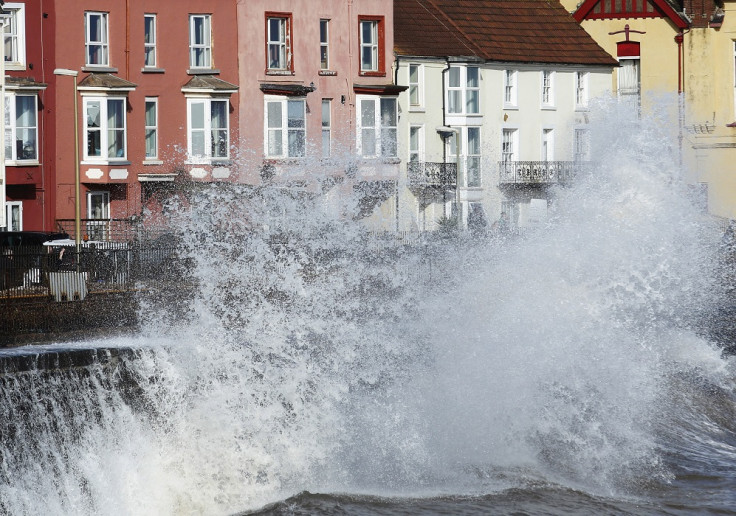'Floods' Minister Eric Pickles Apologises for Mistakes But Insists Government Not to Blame

Communities Secretary Eric Pickles has offered a long-awaited apology for the government response to the floods that continue to cover parts of the UK, but immediately claimed it was not ministers' fault.
Instead, he laid the blame squarely at the door of the Environment Agency and its boss, Labour peer Lord Smith, who has found himself isolated and under attack from all sides.
Following reports that the government had been warned of the potential problem almost a year ago, but persistently refused to act, Pickles said mistakes had been made and he offered an "unreserved apology".
I don't see myself becoming the advocate of the 'Save Chris Smith' campaign or printing 'Save The Environment Agency One' T-shirts
But he turned the fire on to Smith and the Environment Agency, suggesting it was in need of major reforms and that it would be "reassessing" its priorities.
"I'll apologise, I'll apologise unreservedly and I'm really sorry we took the advice...we thought we were dealing with experts.
"We made a mistake, there's no doubt about that, we perhaps relied too much on the Environment Agency's advice. We should have dredged," he said.
But in a series of interviews, he in effect pulled the rug from under Smith saying: "I don't see myself becoming the advocate of the 'Save Chris Smith' campaign or printing 'Save The Environment Agency One' T-shirts.
"It's been a very unhappy time for him and no doubt he is reflecting on the feedback he has been receiving. The Environment Agency will not have to form a focus group to find out what people think," he said.
Whether he resigned was "a matter for him...I don't think I should nudge him out," he said.
He also suggested only "parts" of the agency were well led, that it would have to reassess its priorities once the crisis had receded and that: "pretty soon it will have some new leadership."
He also criticised agency boss David Jordan for suggesting it had been a "success story", saying this was not the time to be make such a claim for the work of the agency as a whole.
Meanwhile, the prime minister continues to head meetings of the Cobra committee dealing with the crisis amid criticisms that ministers failed to recognise the extent of the problem soon enough, have cut spending on crucial defences and are now seeking to avoid carrying the can.
Some, including Labour, believe Smith is being scapegoated as a convenient way for the Tories and ministers to duck out of any responsibility for the crisis. And, in a sign of the pressure he is under, he pulled out of a TV interview on Sunday morning.
Smith's term of office ends this summer so he offeres a convenient scalp for ministers struggling to contain the political fallout from the crisis. He has insisted that, throughout the crisis, he has worked within rules and guidelines set out by the government itself.
BUt there are still real fears in Tory ranks that their support will suffer badly in rural areas because of the response to the crisis and David Cameron has been pressed by his own backbenchers over the issue.
Former minister and Somerset MP, Liberal Democrat Jeremy Browne, summed up those feelings, saying in an interview that Cameron appeared to have abandoned his previous support for green issues.
"People have good reason to believe that that was a fairly cynical exercise and that much of the party remains unconvinced of the need to have a coherent environmental policy," he said.
It is certainly the case that it is just such events that can dramatically affect a government's image. Signs of confusion or an inability to get a grip on a crisis can have lasting damage which, just over a year away from the general election, is the last thing the Tories need.
That is partly why the prime minister felt he needed to show he was "taking control" of the response to the crisis. But there is the inevitable downside that, if the criticism continues and there are no clear signs that ministers do indeed have a grip, then the blame will land firmly on the doorstep of 10 Downing Street.
© Copyright IBTimes 2025. All rights reserved.






















